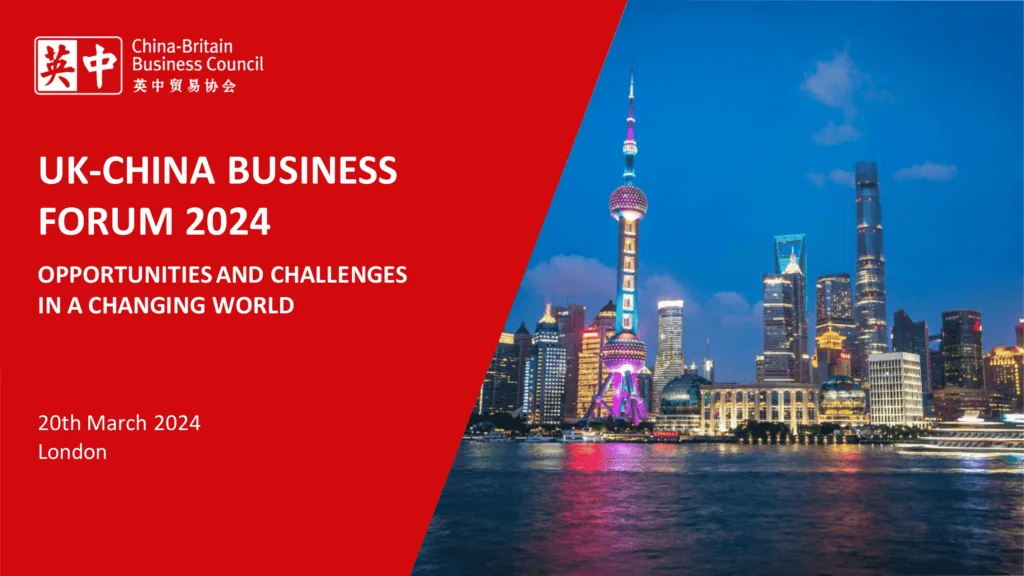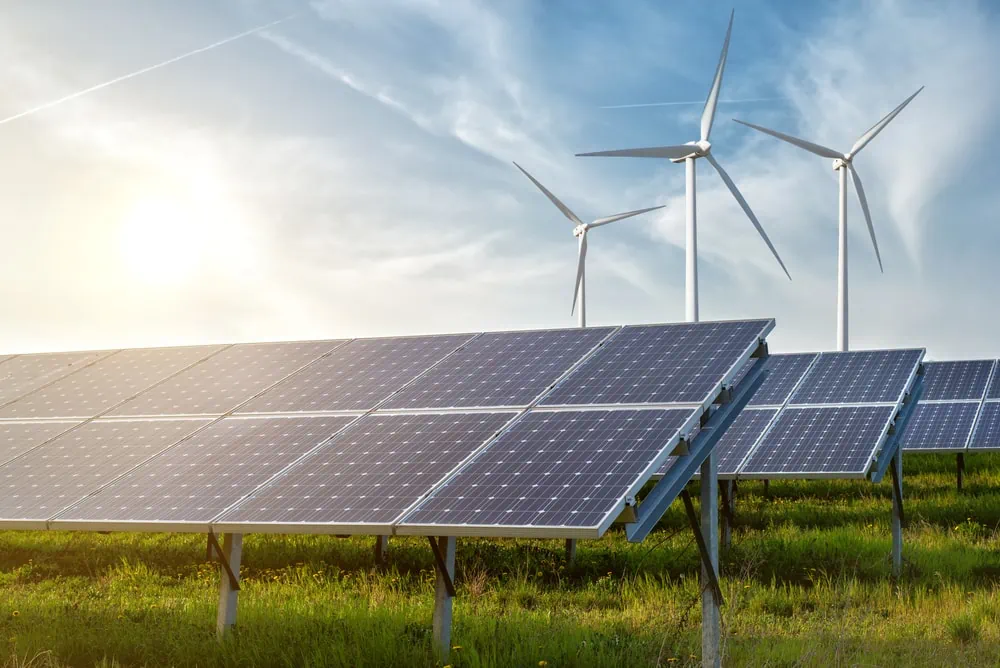The news that 2024 was the first year that global warming exceeded 1.5℃ for the entire year is yet another reminder of the need to enable a low-carbon future, and new energy solutions are at the centre of this necessary transition.
The governments of the UK and China have set ambitious net zero goals, and companies in both countries have been working hard to achieve them across fields from renewable energy to clean transportation – even working in partnership in many cases.
Learn more about UK-China partnerships in new energy at the UK-China Business Forum 2024 on 20 March. Click here to register

And it’s not just the scale of China’s proposition – it’s also the innovation seen in sectors such as energy storage, and most evidently in NEVs, where Chinese brands are now world-leading.
Chinese manufacturer BYD sold more battery-powered electric vehicles (BEVs) (526,409) than Elon Musk’s Tesla (484, 507) in Q4 of 2023 – the first time sales by a Chinese company has outpaced the US titan.
BYD has benefitted from its background as a battery manufacturer, which has given it a head start in terms of technology and access to materials. Its “Blade Battery” technology is designed to improve safety by minimising thermal runaway risks – when the battery’s temperature drops below or above a safe range and damages it or causes fire. This innovative approach has not only bolstered the company’s reputation, but has also accelerated the global shift toward safer and more efficient EV batteries.
As Charles Hendry CBE, former UK minister of energy and climate change noted at last year’s UK-China Business Forum, it has been clear since his dealings with China a decade ago that the country is keen to lead in the technology sector rather than simply taking Western technology and selling it back.
For its part, the UK remains a global leader in the deployment of the financing of renewable infrastructure and at the cutting edge of advanced engineering in areas such as material science and floating offshore wind. According to the National Grid, in 2023, wind power contributed 29.4% of the UK’s total electricity generation.
The UK has the largest installed capacity of floating offshore wind in the world, with two commercial floating wind farms and an ambition to install 50GW by 2030. That ambition is backed by an established pipeline of 11 allocated floating offshore wind commercial sites, totalling 15GW capacity. A thriving ecosystem of universities, innovation hubs, manufacturers and ports are supporting the industry’s development, and the UK Government has previously ring-fenced £160 million of funding.
Moreover, in 2022, a UK Government report based on a three-month study by leading energy consultancy Azure International identified 600GW of technical potential for floating offshore wind in China, and the UK could be a key partner to support this development.
Beyond specific renewable energies, the UK is also a world leader in green finance, with London ranking as the top green financial centre globally in the 2023 Green Finance Index. This offers clear synergy with China’s capital-intensive manufacturing expertise and a potentially global reach of positive impact.
While the geopolitics of the day has caused challenges to many areas of UK-China trade and investment, the energy transition stands as a globally important endeavour that the UK and China can’t afford not to embrace together. The New Energy panel discussion at CBBC’s UK-China Business Forum 2024 on 20 March will explore how successful UK-China partnerships have been made possible and remain viable today. The panel includes Paul Taylor, Chief Advisor, CRRC Times Semiconductor Co. Ltd; Bill Ireland, Chief Executive, Logan Energy (TBC); Eugene McKenna, Hydrogen and Sustainable Technologies Director, Johnson Matthey; and James Brodie, Regional Director, Scotland, Commercial Director, Industrial, China-Britain Business Council (Moderator). Click here to register.



